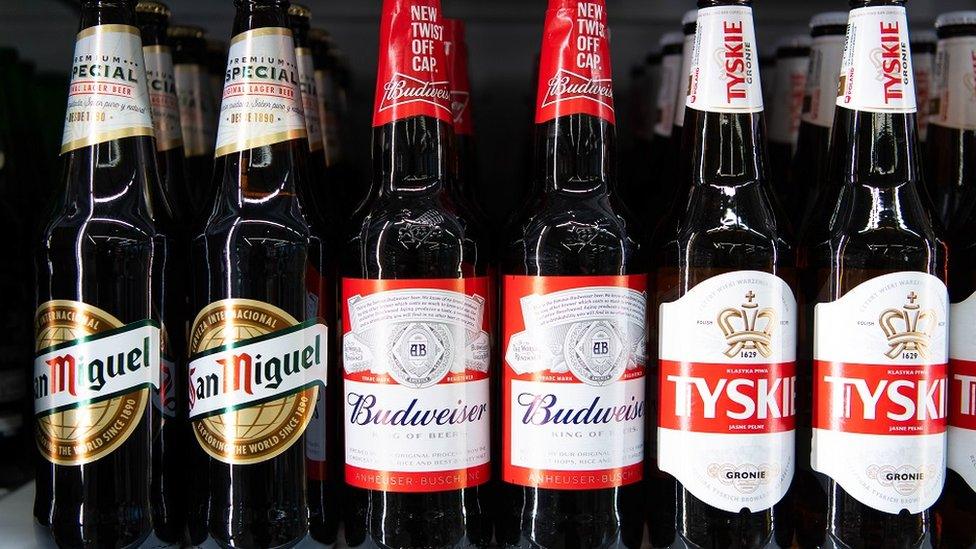Industry consulted on raising minimum alcohol price in Scotland
- Published
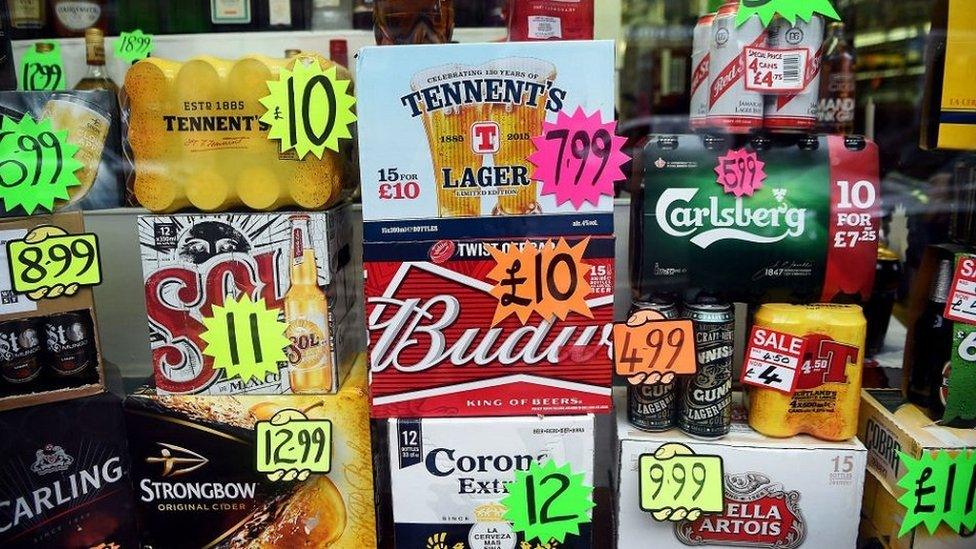
A 50p minimum price per unit of alcohol was implemented in May 2018
The alcoholic drinks industry is being consulted on the possibility of increasing the minimum price of a unit of alcohol from 50p to more than 80p.
The Scottish government's minimum unit pricing (MUP) policy, in place since 2018, is due to expire next year.
A survey of the sector includes the options of reducing the price, keeping it at 50p, or increasing it to 60p, 70p, 80p, or more than 80p.
The feedback will help inform what level MUP should be set at in future.
But the Federation of Independent Retailers (FIR) has expressed concern about the prospect of the current level soaring by more than 60%.
Under the 80p plan the Daily Record, external reports that a bottle of Scotch whisky could rise by more than £8 and a six-pack of Tennent's lager could go up to almost £10.
First Minister Humza Yousaf praised the impact of the policy over the last five years but would not speculate on the future rate of MUP.
He told BBC Scotland: "We have got to make sure, from a government perspective, that we have a robust evidence base and that we have done the consultation with stakeholders as necessary.
"I'm not going to jump the gun. I'm not going to pre-empt what that evidence base will tell us.
"But I promise you that whatever decision we make - on a policy that has already saved many lives - will be evidence-based."
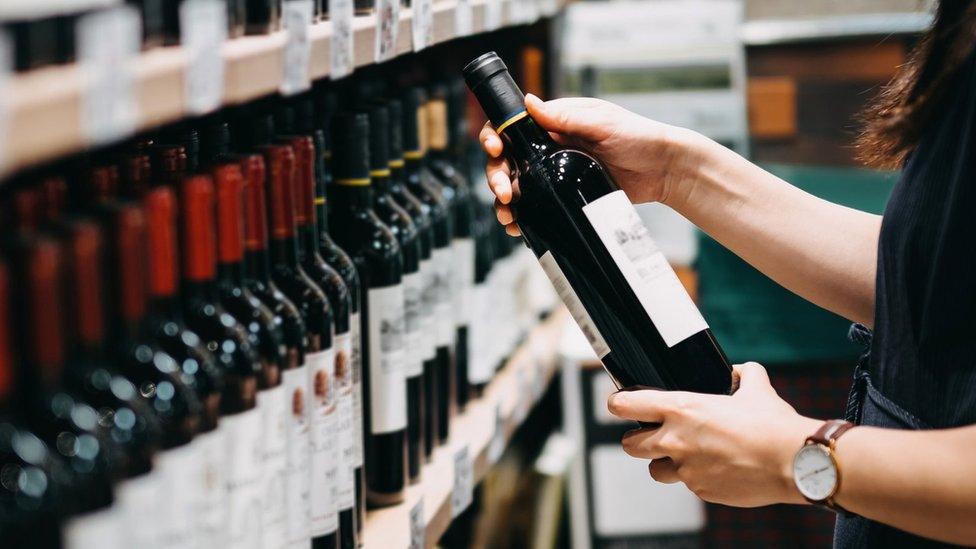
Before minimum pricing, Scottish supermarkets usually had lower alcohol costs than convenience stores
Hussan Lal, of the Federation of Independent Retailer's president in Scotland, said he could see the argument for increasing a price that was set five years ago.
But he described a rate of more than 80p was "over the top".
Mr Lal added: "This could price out those who look forward to a beer or a glass of wine.
"It would be particularly hard when family budgets are already badly squeezed by the cost of living crisis."
Mr Lal added that he welcomed any reduction in harmful levels of drinking but stressed MUP could only be part of the solution.
He said: "There needs to be highly effective campaigning to help change Scotland's attitude towards drink and therapy for problem drinking needs to be much more widely available."
'Complex societal issue'
The Scotch Whisky Association said it was committed to working with ministers to tackle alcohol misuse.
A spokesman said: "The fact remains that alcohol harm is a complex societal issue that cannot be tied to the effectiveness of a particular policy.
"Evaluating the impact of MUP is not straightforward and has been made more complex by the pandemic. "Before considering the next steps on MUP, the Scottish government should, as it has committed to doing with the alcohol advertising consultation, work with the alcohol industry and fully consult on any future measures."
A Scottish government spokeswoman said its final report would be put before parliament later this year.
She added: "These surveys are part of the Scottish government's ongoing work to review the operation and effect of MUP at the current price of 50p per unit and will help inform a potential future level of MUP, should evidence support its continuation.
"Recent research published in the Lancet by Public Health Scotland and Glasgow University estimated that around 150 alcohol attributable deaths and 400 alcohol attributable hospital admissions each year have been averted since the policy was introduced, with the largest reductions in our most deprived areas."
The report, published in March, external, suggested the introduction of MUP in Scotland has led to fewer alcohol-related deaths compared to England.
The study estimated that following the strategy 156 deaths a year were averted.
Before the policy, Scotland had twice as many deaths (per 100,000) than England but after MUP's introduction the gap between the two has reduced.
National Records of Scotland data, external shows recorded alcohol-related deaths have generally risen since 2012, though they did drop in 2019.
In 2021, alcohol-specific deaths rose by 5% to 1,245 - part of a UK-wide trend linked to increased heavy drinking patterns during the Covid pandemic.
- Published21 March 2023
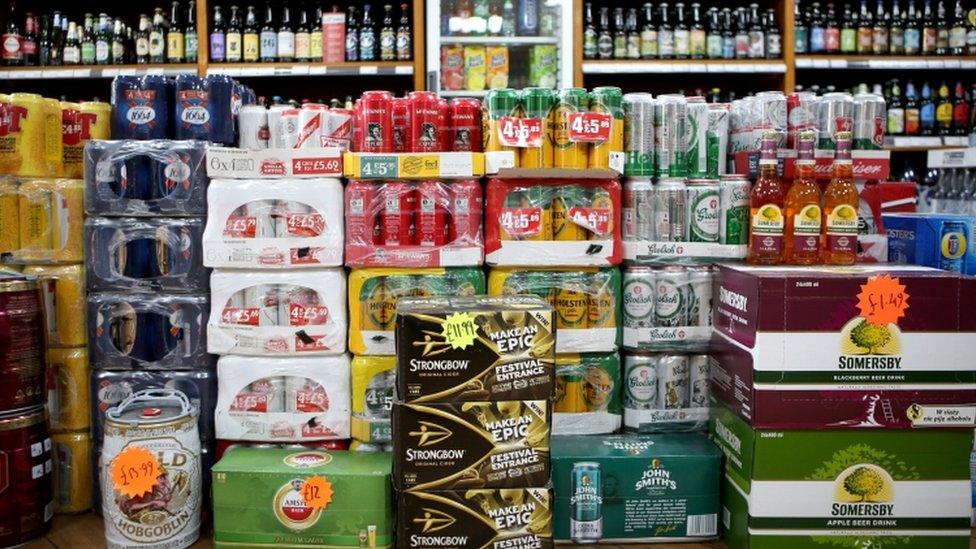
- Published22 November 2022
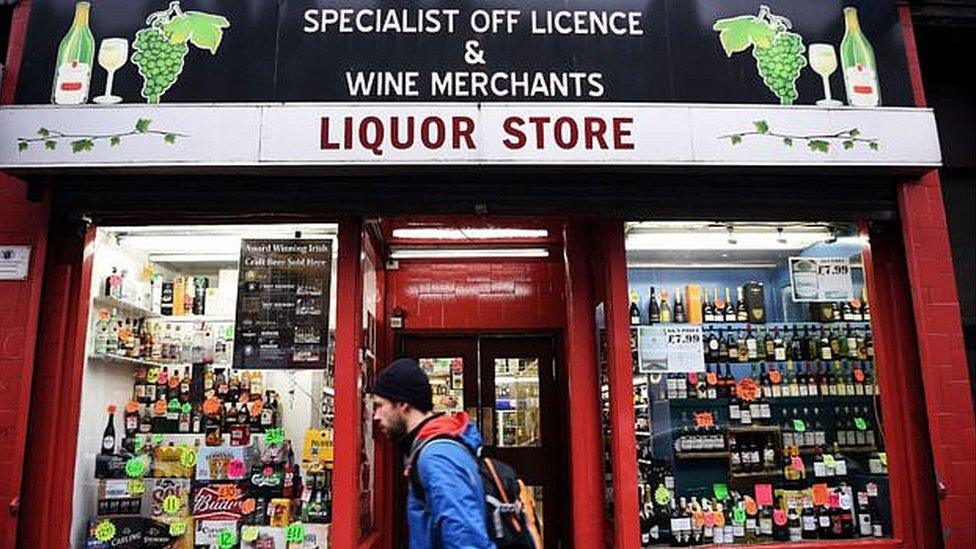
- Published15 November 2022
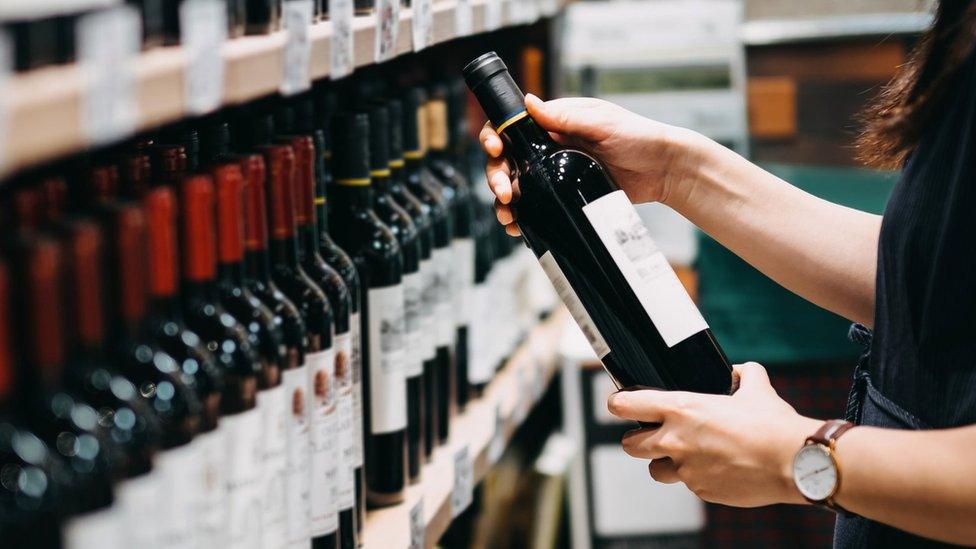
- Published31 January 2023
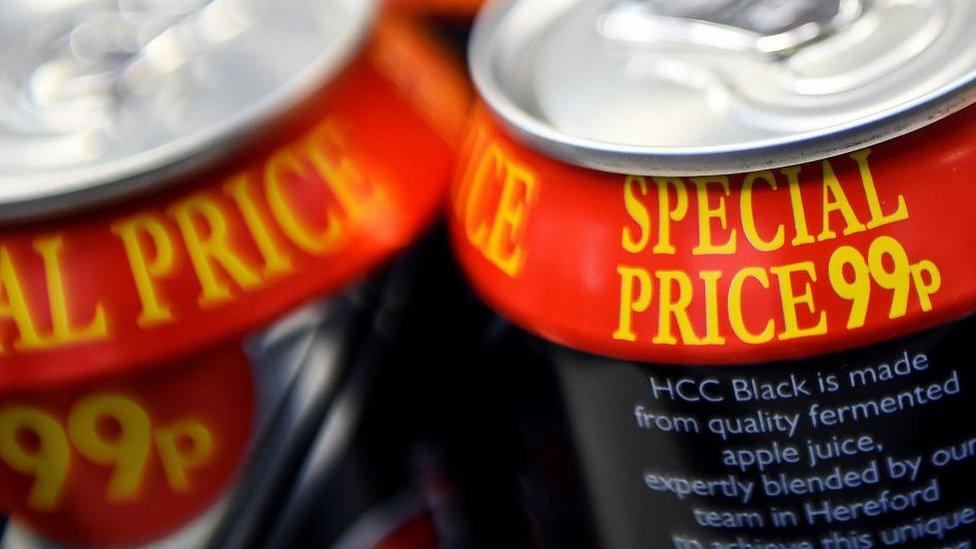
- Published7 June 2022
